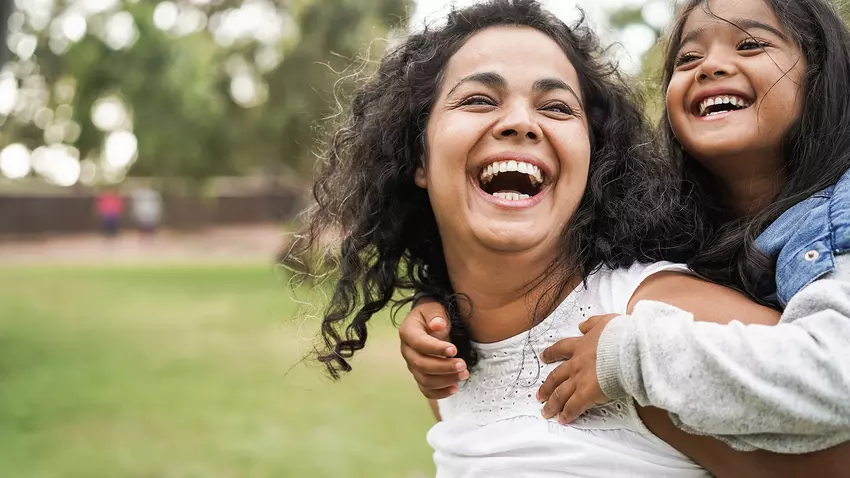Get services for the Native Family community
Native Families embracing culture to strengthen minds, soothe thoughts and heal spirits.
Services
The following trainings are available free to the County of Santa Clara residents. Please contact us if you would like more information or attend training.
Mental Health First Aid is an 8-hour course that teaches you how to help someone who is developing a mental health problem or experiencing a mental health crisis. The training helps you identify, understand, and respond to signs of addictions and mental illnesses. The course trains participants to help people who may be experiencing a mental health problem or crisis. You learn:
- Risk factors and warning signs of mental health problems.
- Information on depression, anxiety, trauma, psychosis, and addiction disorders.
- A 5-step action plan to help someone developing a mental health problem or in crisis.
- Where to turn for help — professional, peer, and self-help resources.
Youth Mental Health First Aid is designed to teach parents, family members, caregivers, teachers, school staff, peers, neighbors, health and human services workers, and other caring citizens how to help an adolescent (age 12-18) who is experiencing a mental health or addictions challenge or is in crisis. Youth Mental Health First Aid is primarily designed for adults who regularly interact with young people. The course introduces common mental health challenges for youth, reviews typical adolescent development, and teaches a 5-step action plan for how to help young people in both crisis and non-crisis situations. Topics covered include anxiety, depression, substance use, disorders in which psychosis may occur, disruptive behavior disorders (including AD/HD), and eating disorders.
Digital Storytelling is a transformative process of participatory media production where each individual becomes the author and teller of their own autobiographical short story, in their own voice using photos, videos, music, and sound effects chosen by them and edited into a meaningful whole by them. During the Digital Storytelling process the facilitators are present solely to help the individual craft their own story. Stories can be about an incident, a relationship, a good day or a bad day, a person’s whole lifetime, or anything else a person can think of. It is up to the storyteller to decide what story they want to tell. During this workshop participants will learn how to hone a story down into a 3-5 minute piece and will also learn how to use editing software (FCPX, Aperture, and Sound Studio) to turn their script into a piece of media. The emphasis of the workshop is not so much on learning the software, but rather the healing and transformative power of telling our stories in our own voice. The group experience of creating stories together fosters a sense of community and a container in which people can safely explore how to articulate their lived experiences as a consumer, a family member, or clinician, a mother, a daughter, a son, a brother, a friend, or any other experience, role, or relationship the storyteller wishes to memorialize. Participants can choose to share their stories in small groups, in large groups, or keep it to themselves.
WRAP is a self-designed plan for staying well and for helping you to feel better when you are not feeling well, to increase personal responsibility, and to improve your quality of life. The following topics are covered using a workshop style, including presentations, demonstrations, interactive discussion, and related activities:
- hope, personal responsibility, education, self-advocacy, and support
- accessing good health care and managing medications
- self-monitoring using WRAP: A Wellness Recovery Action Plan (an individualized system for monitoring and responding to symptoms to achieve the highest possible levels of wellness)
- wellness tools, include finding and keeping a strong support system, peer counseling, focusing, relaxation exercises, diet, light, exercise, sleep, journaling, music, etc.
- dealing with the effects of trauma
- suicide prevention
- building self-esteem
- changing negative thought patterns to positive
- building a lifestyle that promotes wellness
NFOE collaborates with other organizations that serve the American Indian community. These organizations are the Washoe Native TANF Program, the American Indian Alliance, the Indian Health Center of Santa Clara Valley, and several Native students and church-based organizations.
As a people, we respect the power of the circle. NFOE supports families and groups through using the Talking Circle as a sacred space for sharing and discovery. A core value of NFOE is respect for the collective wisdom of all members of the American Indian community. From youth to elders, we all have stories of how we overcome pain and trauma through love and understanding of our personal journey and that of our people. NFOE seeks to create opportunities for the sharing of the stories which become our collective truth.
We provide limited one-to-one support and education to individuals and families. We will connect individuals and families to appropriate mental health treatment if needed.
Advocacy
Our team attends and advocates for the Native Community Needs at these meetings:
